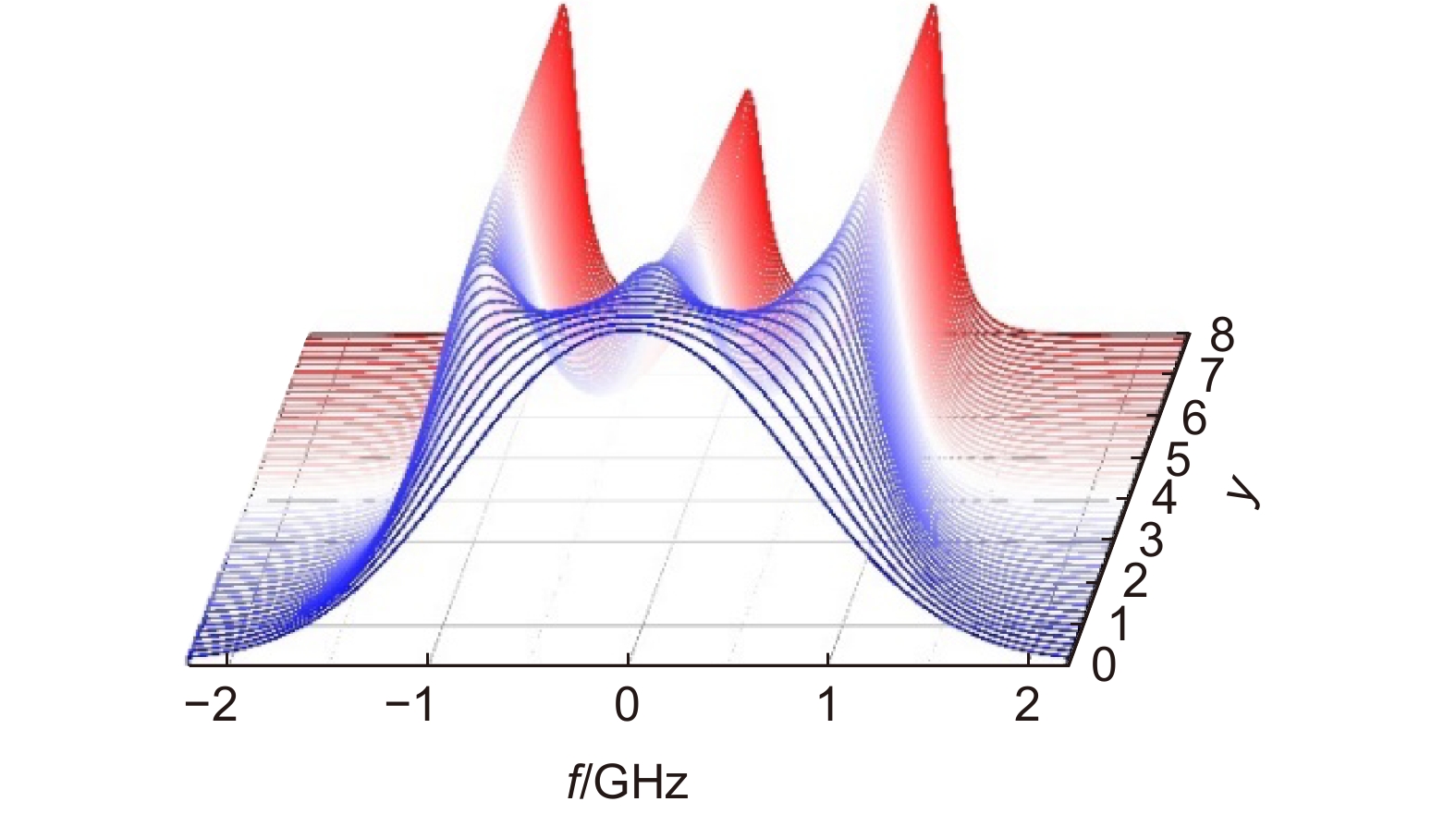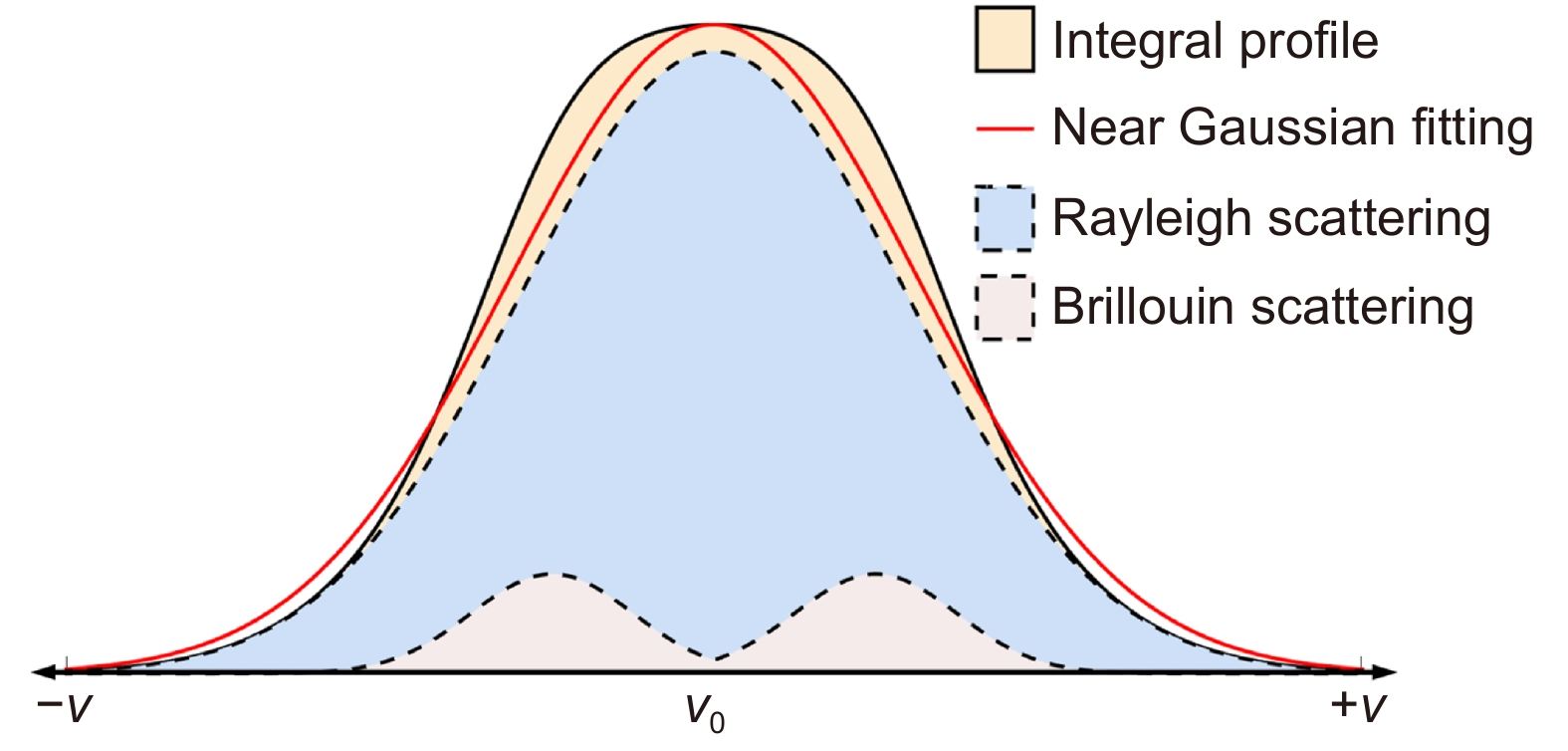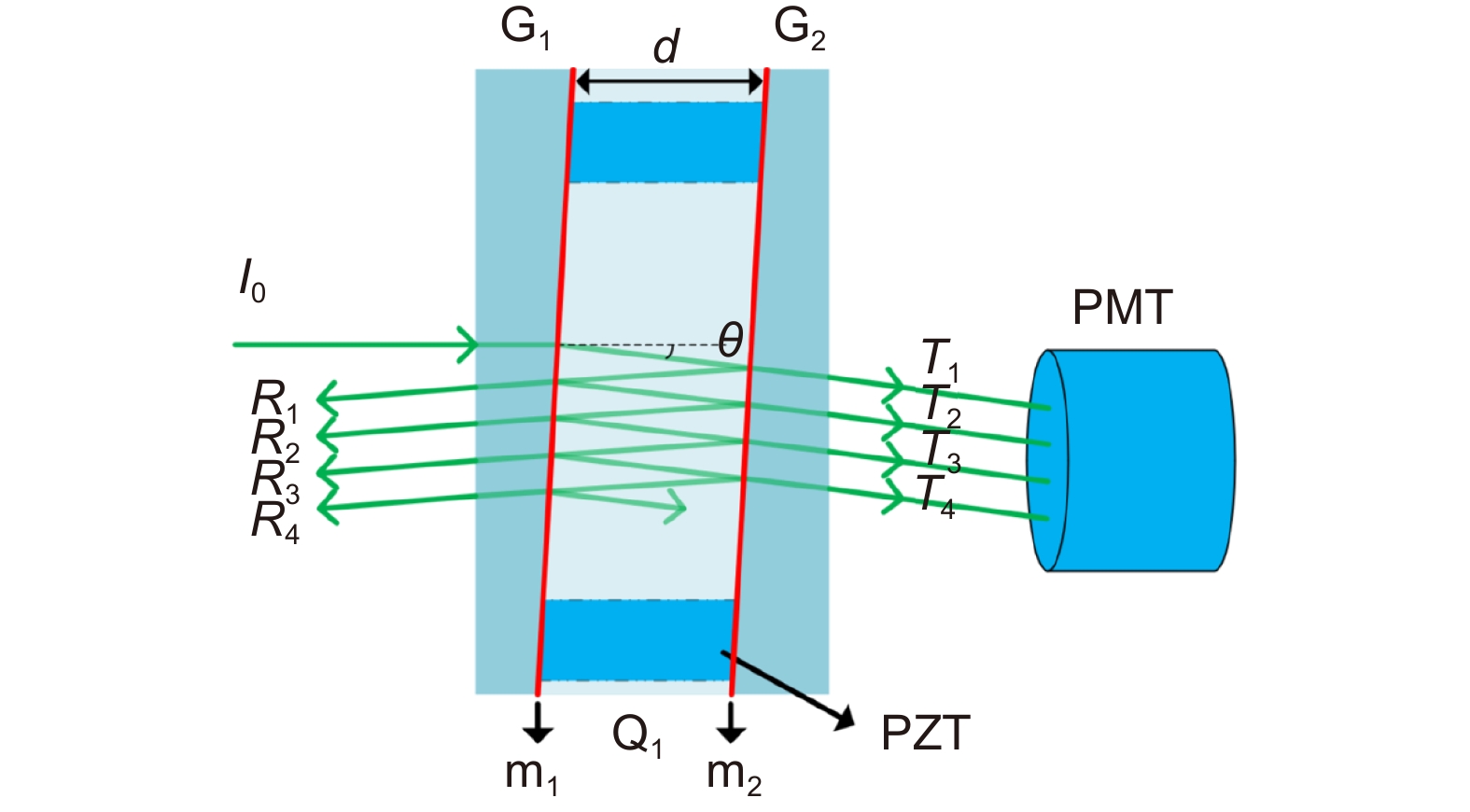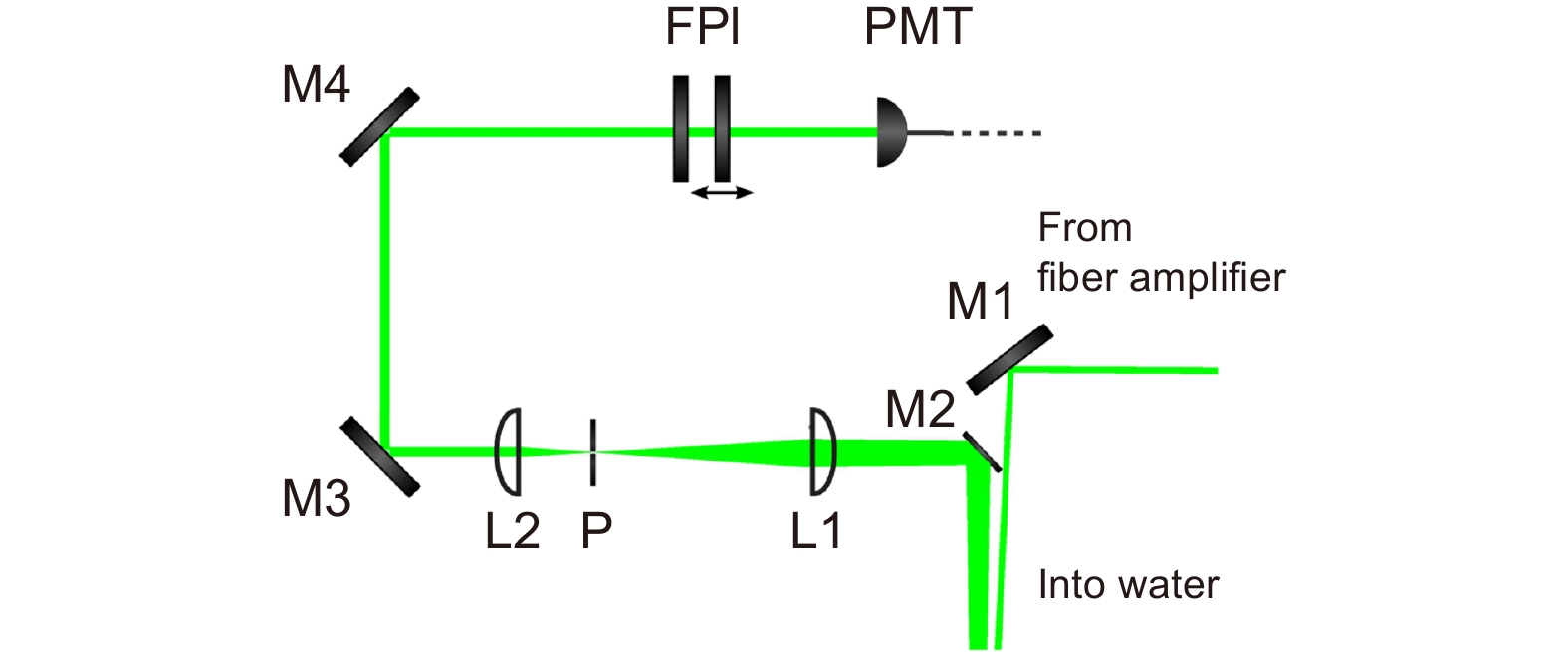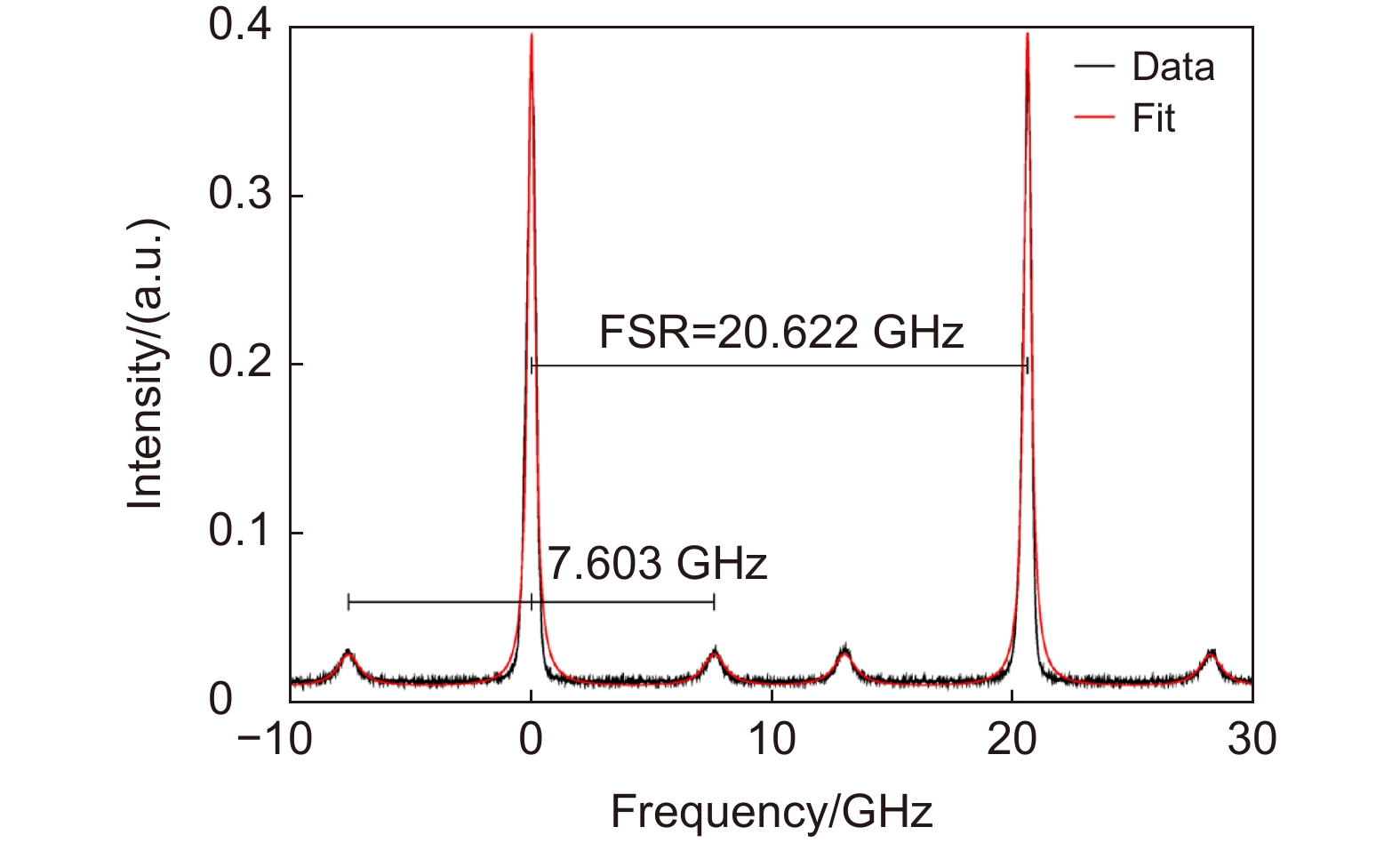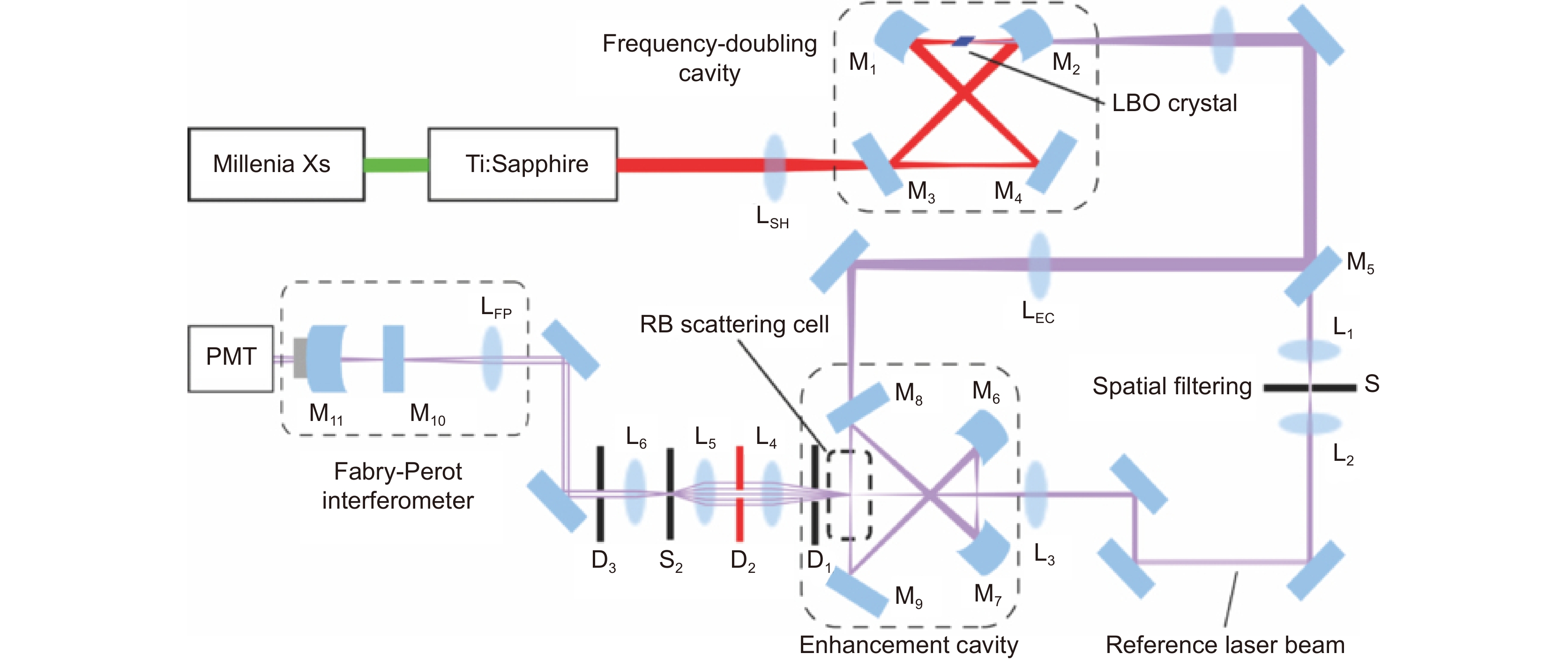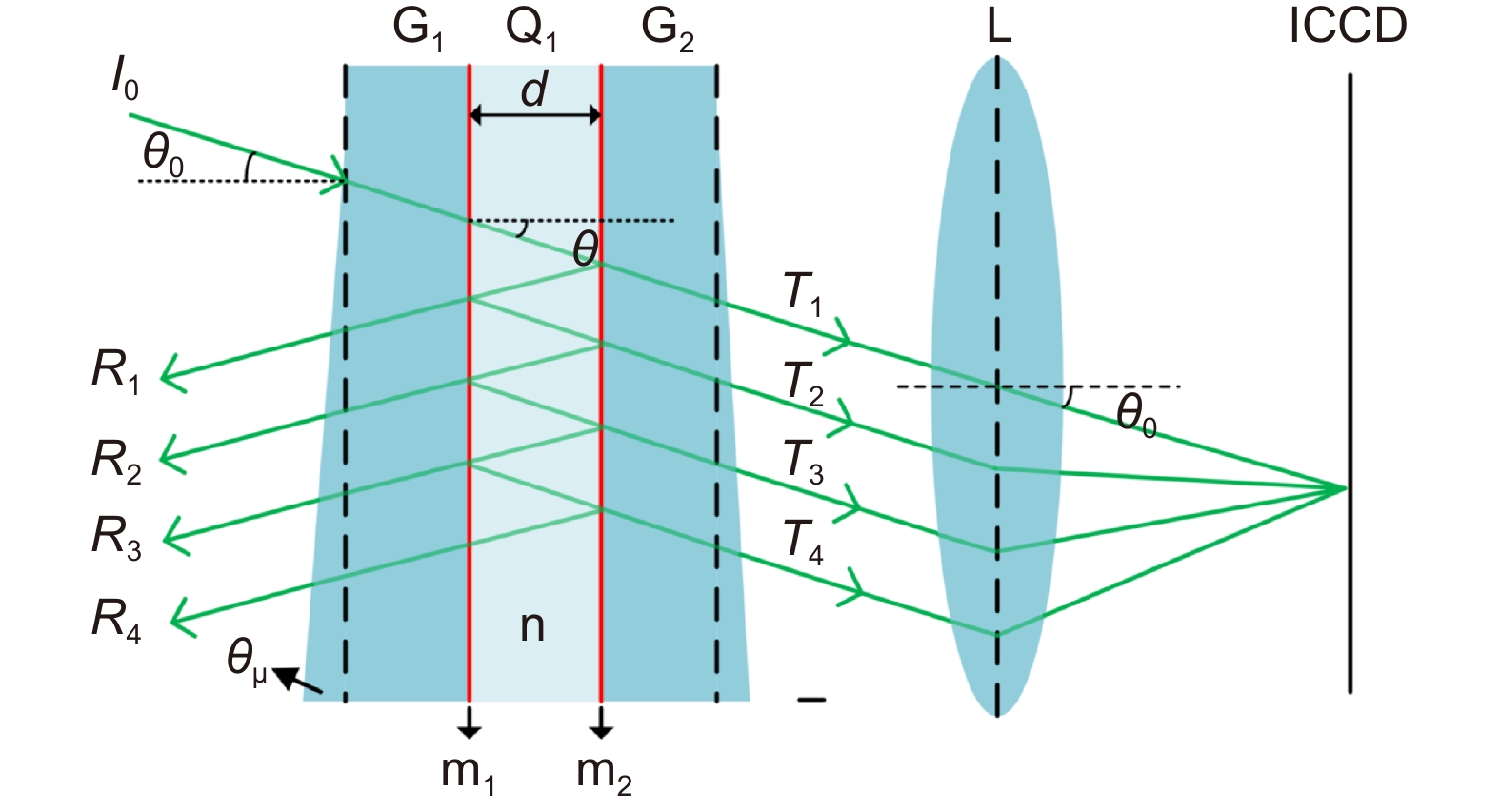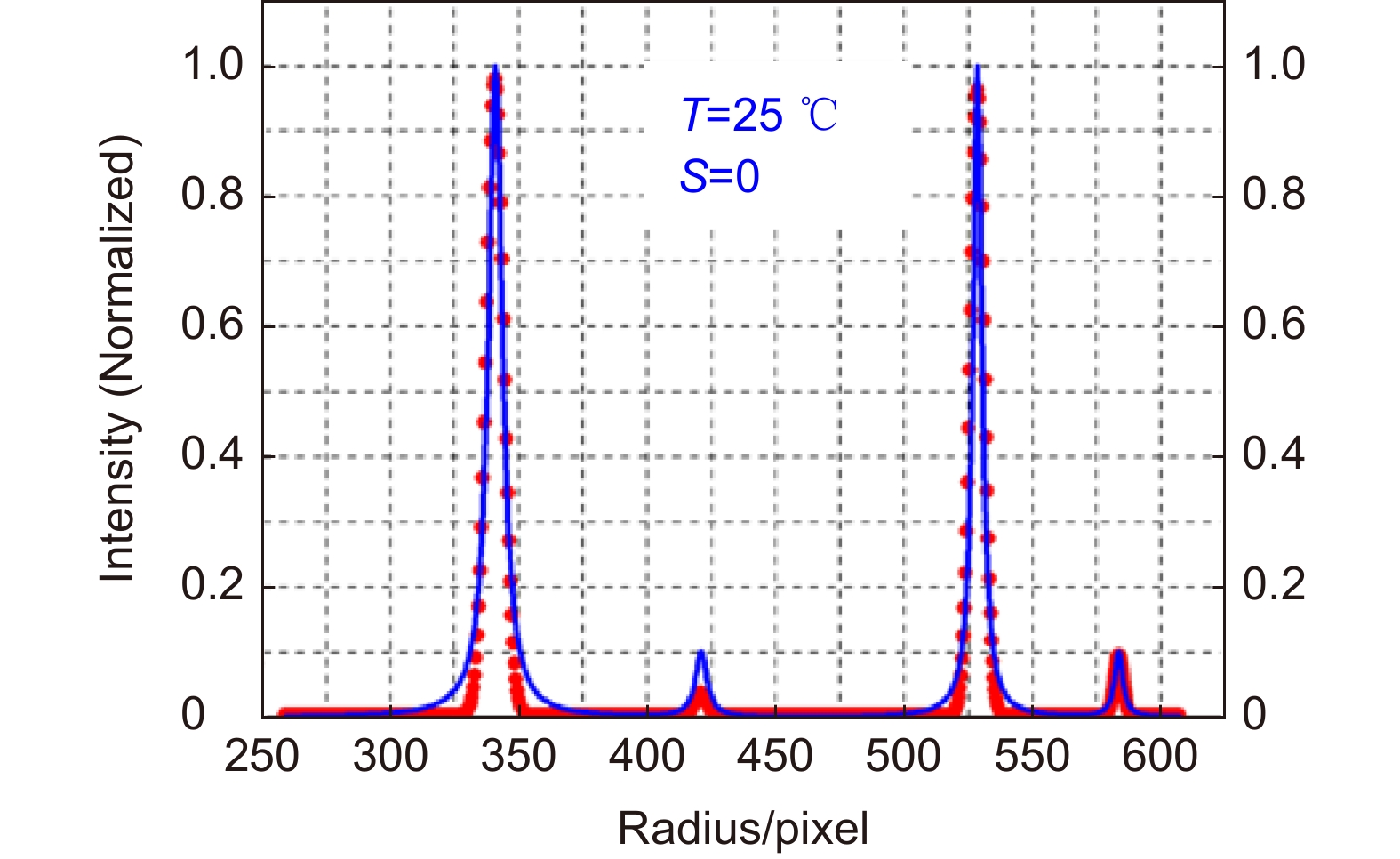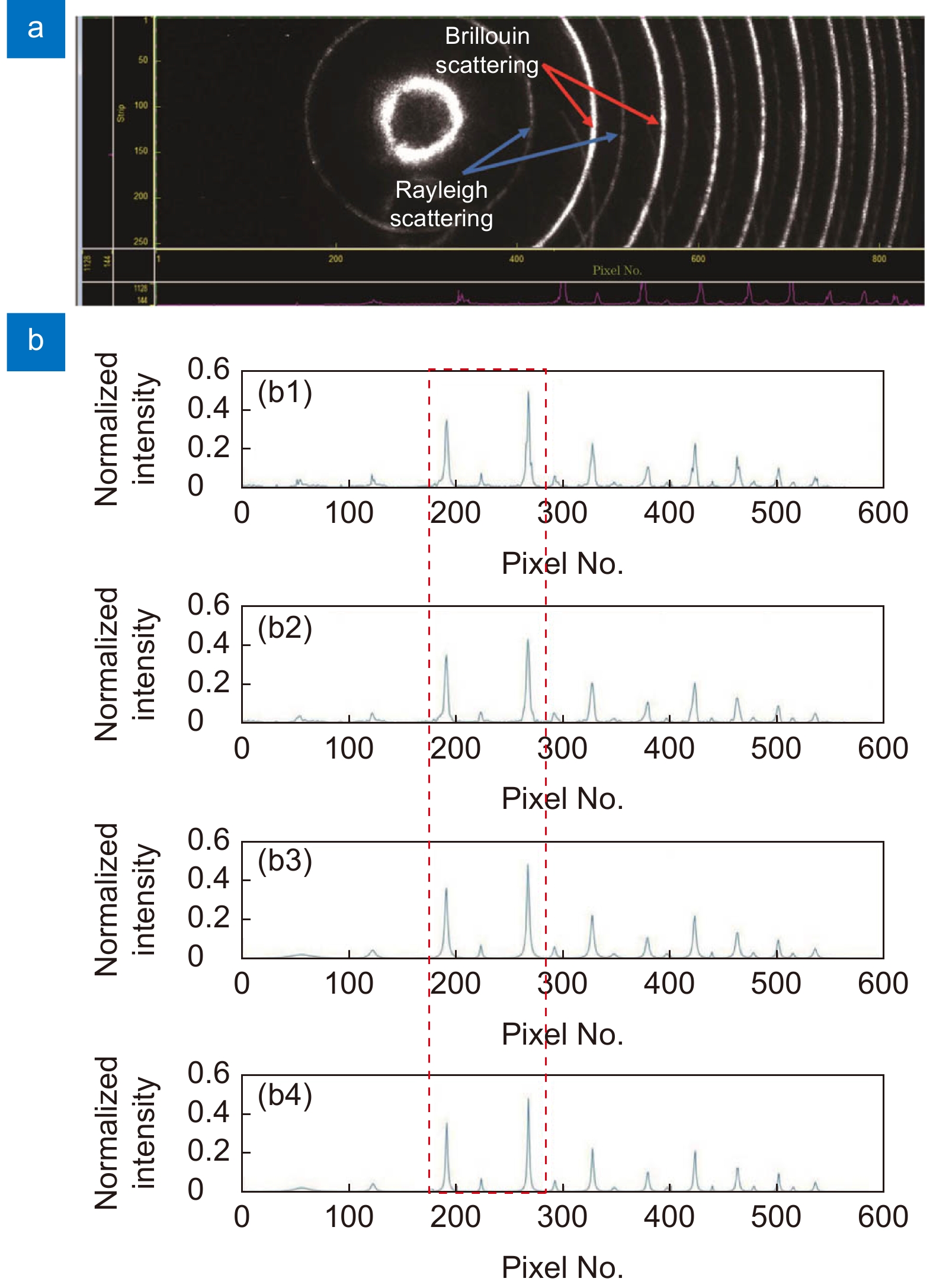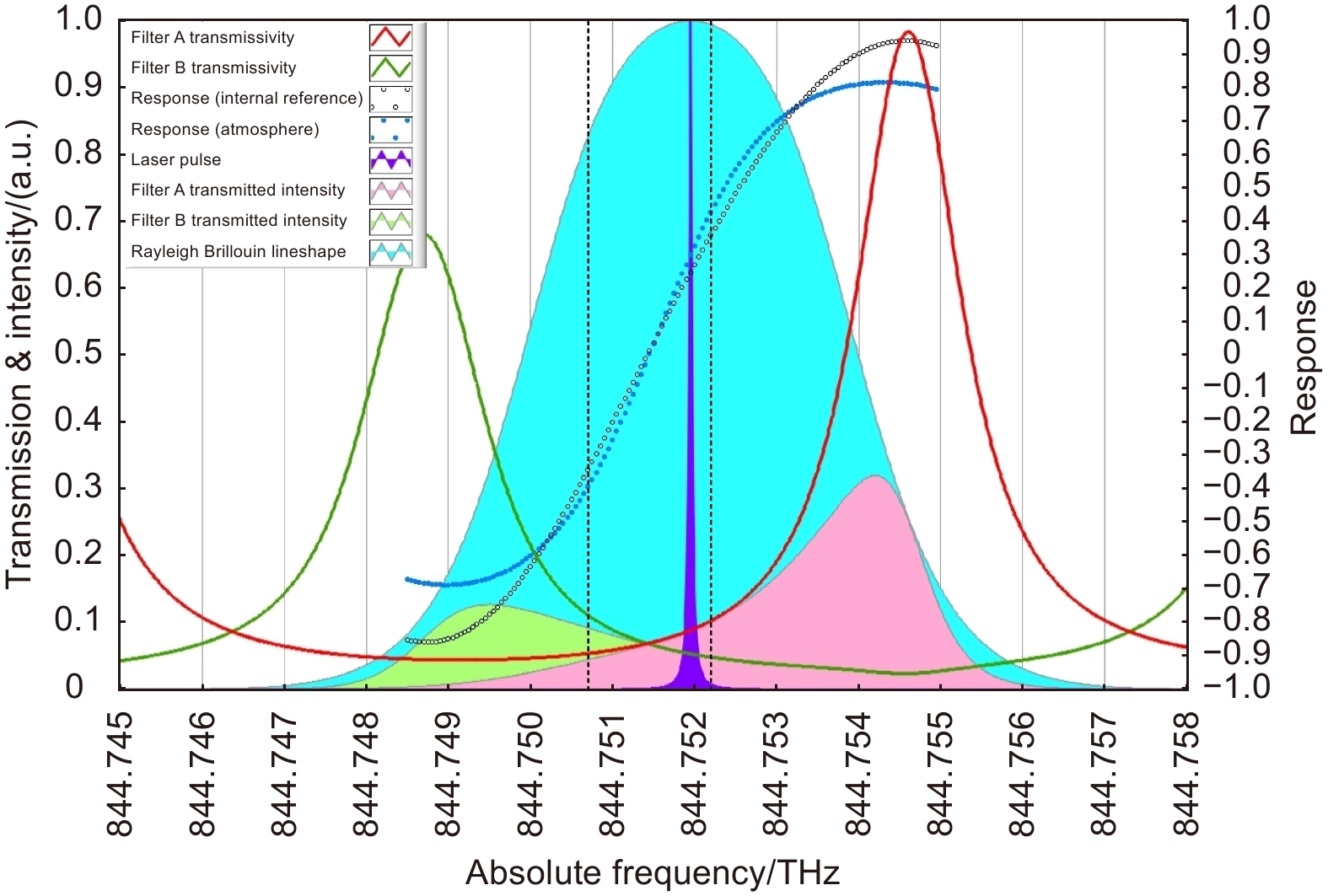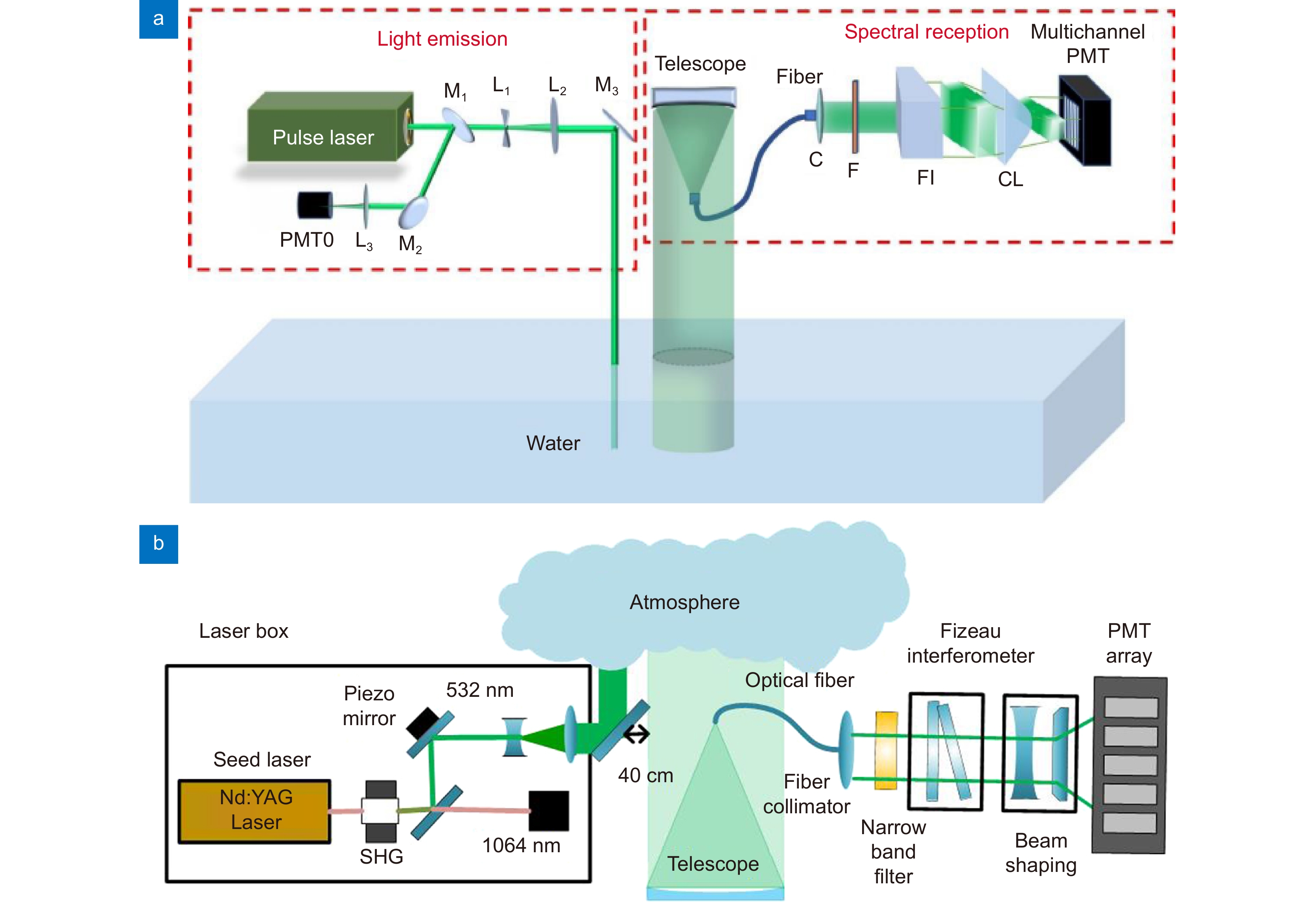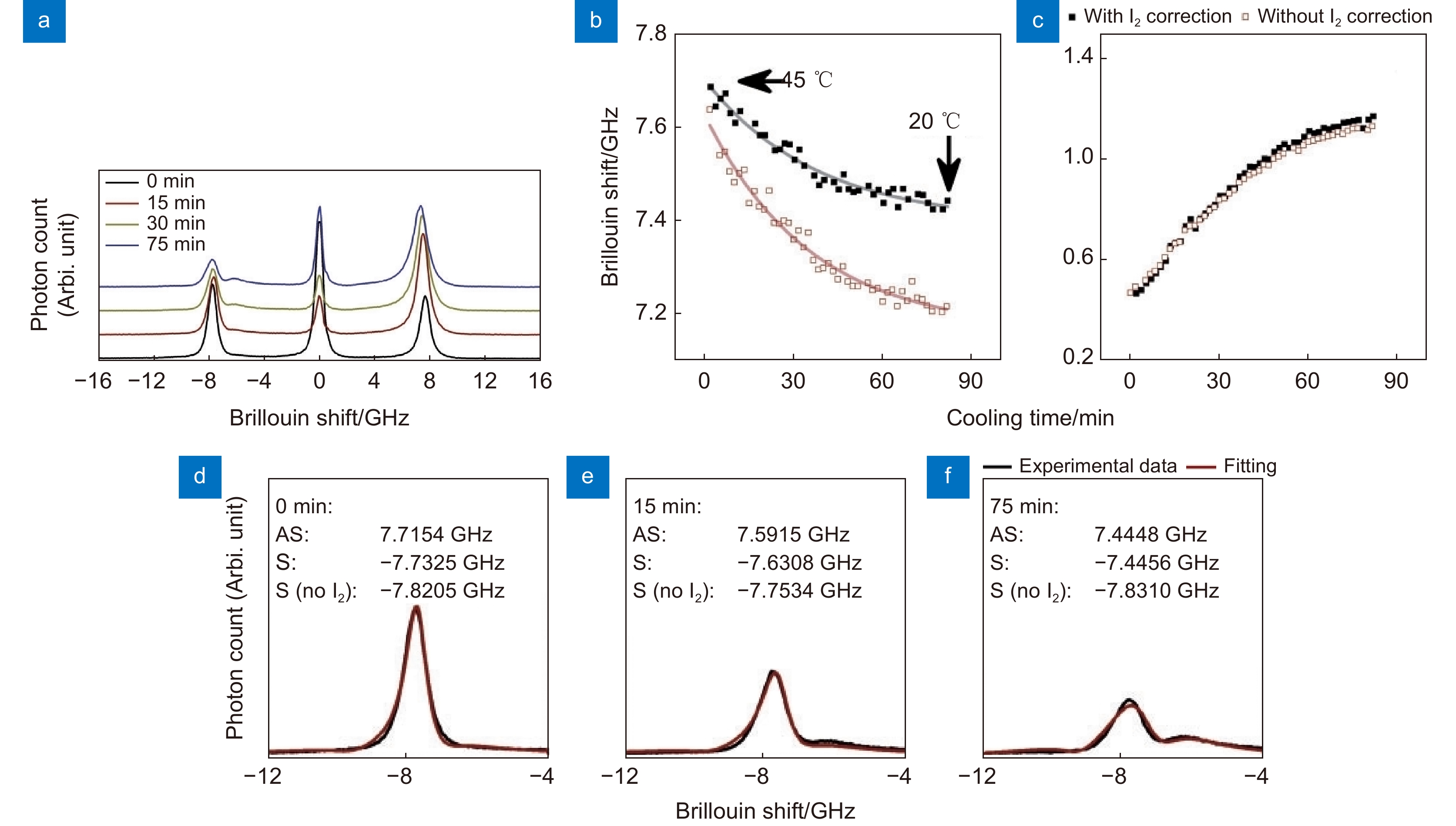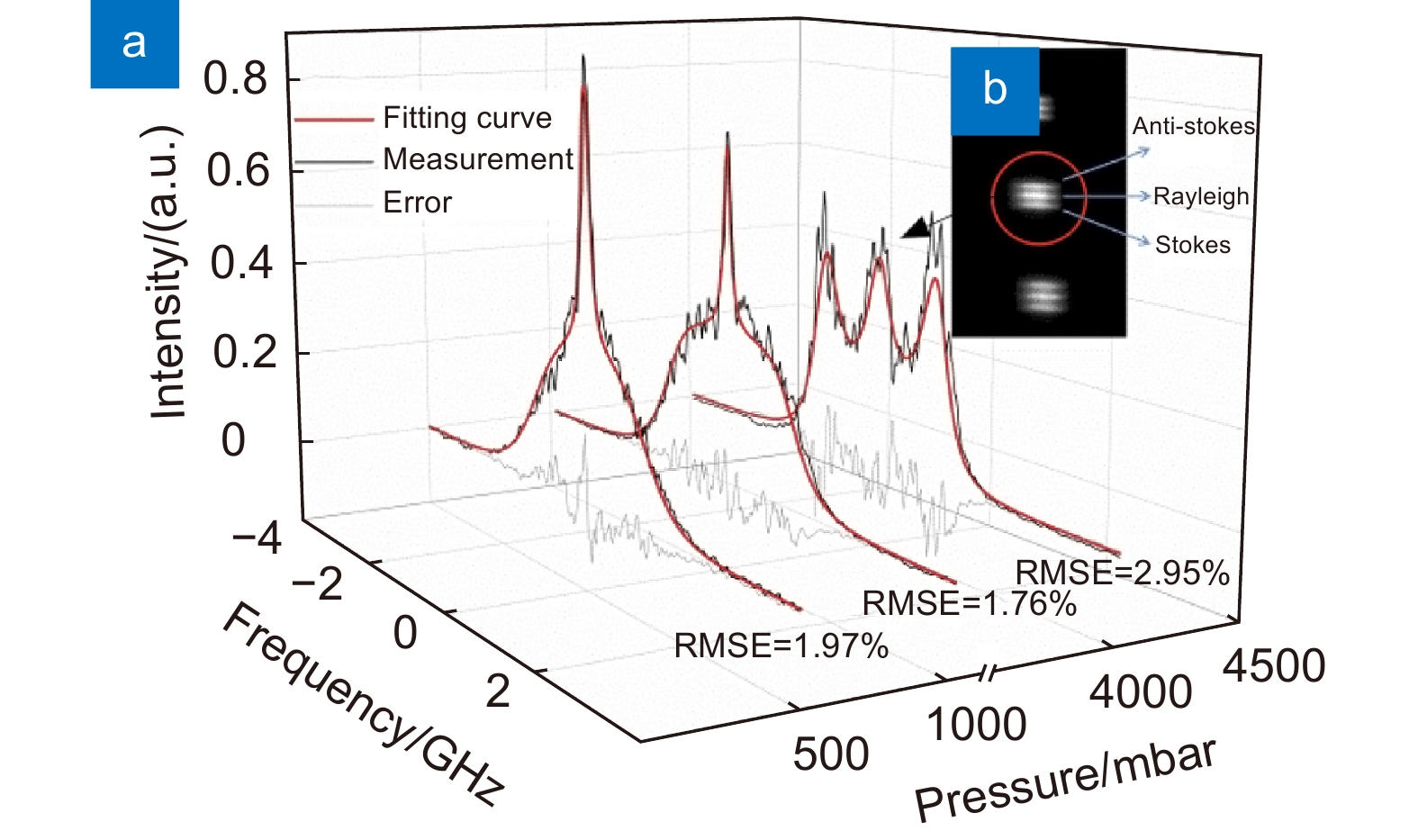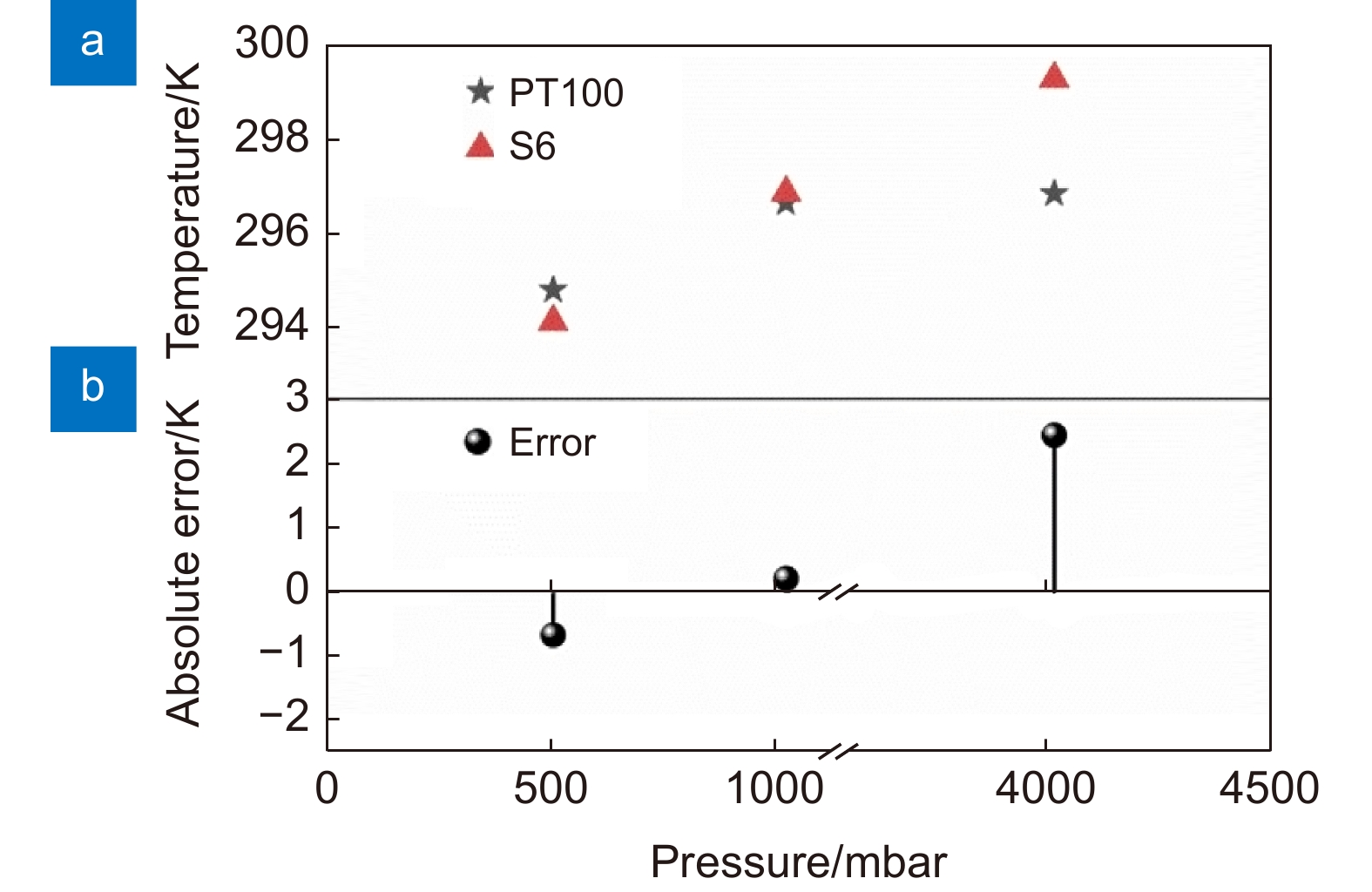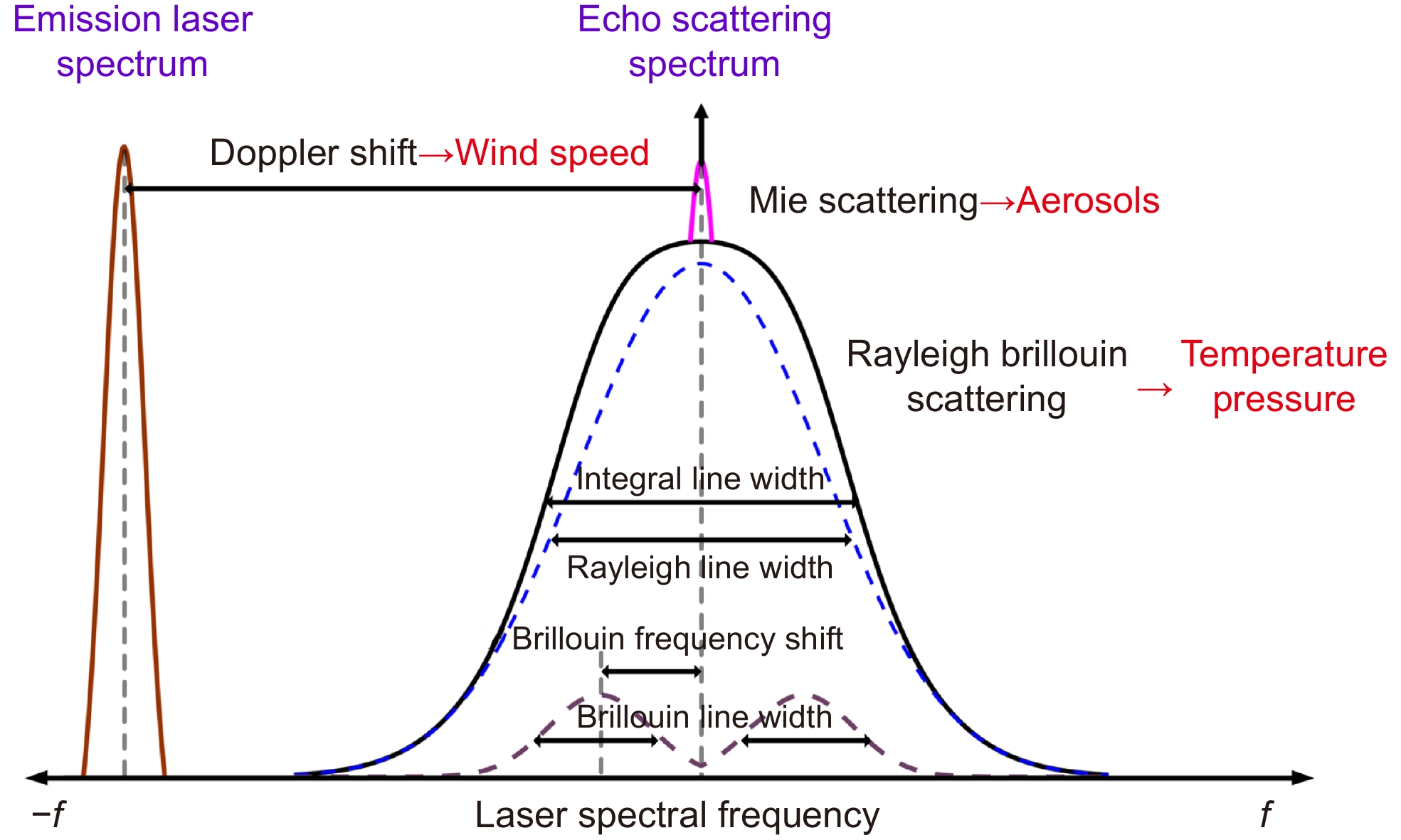Multiple environmental elements laser remote sensing method based on direct scattering spectrum
-
摘要
激光雷达以其具有主动发射、高测量精度、良好的实时性和高时空分辨率等特点,在环境要素遥感中发挥着重要作用。直接散射光谱激光雷达可以基于散射光谱与介质环境的耦合关系,通过直接测量能量维度和光谱维度多特征信息诸如能量、频移、线宽等进行多环境要素的反演。文章对近年来直接散射光谱激光雷达在光谱特性研究技术和光谱探测技术两个方面取得的进展进行了归纳分析和总结,主要介绍了基于直接散射光谱的水下和大气多环境要素探测理论和反演模型,以及目前已有的多种直接散射光谱的测量方法。
Abstract
LiDAR plays an important role in the remote sensing of environmental elements due to its active emission, high detection accuracy, good real-time performance, and high spatial and temporal resolution. Based on the coupling relationship between the scattering spectrum and the medium environment, the direct scattering spectrum LiDAR can invert the multiple environment elements by directly measuring the energy dimension and the spectral dimension multi-feature information such as energy, frequency shift, linewidth, etc. In this paper, the recent advances in spectrum characteristics research and spectrum detection techniques of direct scattering spectrum LiDAR are briefly summarized. The detection theory and inversion models of underwater and atmospheric direct scattering spectrum are mainly introduced, as well as the existing measurement methods of direct scattering spectrum.
-
Overview
Overview: Classical LiDAR based on energy detection was the first to be developed for environmental element detection, employing the lidar equation for the inversion of environmental parameters. In order to enhance the signal-to-noise ratio of the return signal and achieve accurate parameter inversion, high spectral resolution lidar(HSRL) has been identified as a viable approach. Both energy-detection-based lidar and HSRL utilized energy dimension information for remote sensing of environmental elements. However, the information captured solely in the energy dimension is limited. Environmental information is not only manifested in the energy dimension but also in the spectral dimension. Since the environmental information is not only manifested in the energy dimension but also in the spectral dimension, the characteristic information of the scattering spectrum, such as spectral energy, spectral line width, and spectral frequency shift, plays a very important role in the detection of multiple environmental elements. Based on the coupling relationship between the scattering spectral characteristic information and the medium environment, the inversion of multi-environmental elements can be directly carried out. By directly coupling the characteristic information of scattering spectra with the medium's environment parameters, direct scattering spectral lidar (DSSL) can realize the inversion of multiple environmental parameters. DSSL exhibits significant advantages in the detection of multiple environmental elements. However, with the demand for more detailed spectral information, the detection requirements of DSSL have also increased and primarily displayed in two aspects: 1) Spectral characteristic research: Utilizing spectral characteristic information for the detection of multiple environmental elements necessitates in-depth research on the relationship between underwater temperature, salinity, atmospheric temperature, pressure, and other environmental parameters with scattering spectra. This includes a thorough investigation of the spectral characteristics of direct scattering under various temperature, salinity, or pressure conditions, and the establishment of inversion models for multiple environmental elements based on the coupling relationship between direct scattering spectrum and environmental parameters. 2) Spectrum detection methods: As DSSL directly utilizes spectral dimension characteristic information, it places higher demands on the precise detection of scattering spectra. During spectral detection, attention should be paid to the system's sensitivity and accuracy, while considering real-time measurement continuity, vertical profile measurement, and the integrity of spectral detection. Acquiring more accurate scattering spectra is necessary to enhance the accuracy of the final detection results for multiple environmental elements. In this paper, we focus on the development of the inversion theory and various spectral detection methods for direct scattering spectral detection in underwater and atmospheric environments, providing an outlook on its future development.
-

-
图 6 扫描F-P干涉仪测量水中布里渊散射实验装置图[51]
Figure 6. Experimental diagram of scanning F-P interferometer for measuring Brillouin scattering in water
图 7 使用扫描F-P干涉仪在水中测得的布里渊散射谱线图[51]
Figure 7. Brillouin scattering spectrum plot obtained using scanning F-P interferometer in water
图 8 采用扫描F-P干涉仪的大气激光雷达系统实验装置图[53]
Figure 8. Experimental diagram of atmospheric LiDAR system with scanning F-P interferometer
图 9 使用扫描F-P干涉仪在大气中测得的布里渊散射谱线与理论谱线对比图[53]。(a)最终的瑞利布里渊散射剖面;(b)测量值与Tenti S6模型之间的残差
Figure 9. Comparison of experimental and theoretical Brillouin scattering spectrum using scanning F-P interferometer in the atmosphere. (a) The final Rayleigh-Brillouin scattering profile;(b) Residuals between experimental measurements and Tenti S6 model
图 13 实验原始光谱及处理后结果[57]。(a)实际温度20℃和实际盐度35‰下ICCD采集的干涉光谱图;(b)散射信号的二维光谱及其处理
Figure 13. Experimental raw spectra and processed results. (a) Interference spectrogram collected by ICCD with actual temperature of 20 ℃ and actual salinity of 35‰; (b) Two-dimensional spectra and processing of scattering signals
图 16 多边缘探测技术测风原理及测量结果图[69]。(a)基于F-P标准具四边双频技术的测风原理;(b)径向风速测量误差;(c)后向散射比测量误差和后向散射比
Figure 16. Principle and measurement results of multi-edge detection technique for wind measurement[69]. (a) Wind measurement principle based on F–P etalon quad-edge and dual-frequency technique; (b) Radial wind speed measurement error; (c) Backscatter ratio measurement error vs. backscatter ratio
图 18 DSSL利用双边缘技术反演温盐结果[60]。 (a) 反演温度误差随积分次数变化(5000次时误差小于0.1 °C);(b) 反演盐度误差随积分次数变化(5000次时误差小于0.5%)
Figure 18. Temperature and salinity retrieval using double edge technique in DSSL[60]. (a) Variation of temperature retrieval error with integration iterations (Error is less than 0.1 °C at 5000 iterations); (b) Variation of salinity retrieval error with integration iterations (Error is less than 0.5% at 5000 iterations)
图 21 德国宇航中心瑞利布里渊散射光谱和温度测量结果[62]。(a)瑞利布里渊散射光谱不同高度测量结果;(b)测量温度(红线)和无线电探空仪测量温度对比曲线
Figure 21. Rayleigh Brillouin scattering spectroscopy and temperature measurement results at DLR[62]. (a) Measurement results of Raman Brillouin scattering spectroscopy at different altitudes; (b) Comparison of measured temperature (red line) with radiosonde measured temperature
图 22 DSSL反演温压结果[50]。(a)反演温度(红线)和无线电探空仪测量温度对比曲线;(b)反演压强(红线)和无线电探空仪测量压强对比曲线
Figure 22. Temperature and pressure retrieval results based on DSSL[50]. (a) Comparison of retrieved temperature (red line) with radiosonde measured temperature; (b) Comparison of retrieved pressure (red line) with radiosonde measured pressure
图 26 在热水的自发冷却过程中获得的布里渊散射光谱图[65]。(a)不同时间所得布里渊光谱图;(b,c)在考虑分子碘吸收和不考虑分子碘吸收的情况下,得到的布里渊位移和线宽;(d-f)基于Stokes峰和反Stokes峰的布里渊位移的比较
Figure 26. Illustration of the Brillouin spectra acquired during a spontaneous cooling process of hot water[65]. (a) The acquired Brillouin spectra at different times; (b, c) The retrieved Brillouin shift and linewidth with and without consideration of the molecular iodine absorption; (d–f) Comparison between the Brillouin shift based on the Stokes and anti-Stokes peaks
-
参考文献
[1] 唐军武, 陈戈, 陈卫标, 等. 海洋三维遥感与海洋剖面激光雷达[J]. 遥感学报, 2021, 25(1): 460−500. doi: 10.11834/jrs.20210495
Tang J W, Chen G, Chen W B, et al. Three dimensional remote sensing for oceanography and the Guanlan ocean profiling Lidar[J]. Natl Remote Sens Bull, 2021, 25(1): 460−500. doi: 10.11834/jrs.20210495
[2] Liu D, Zhou Y D, Zhu X L, et al. Investigation on discrimination characteristics of atmospheric and oceanic high-spectral-resolution lidar[J]. J Atmos Environ Opt, 2020, 15(1): 48−54. doi: 10.3969/j.issn.1673-6141.2020.01.005
[3] 刘文清, 陈臻懿, 刘建国, 等. 环境监测领域中光谱学技术进展[J]. 光学学报, 2020, 40(5): 0500001. doi: 10.3788/AOS202040.0500001
Liu W Q, Chen Z Y, Liu J G, et al. Advances with respect to the environmental spectroscopy monitoring technology[J]. Acta Opt Sin, 2020, 40(5): 0500001. doi: 10.3788/AOS202040.0500001
[4] 刘博, 于洋, 姜朔. 激光雷达探测及三维成像研究进展[J]. 光电工程, 2019, 46(7): 190167. doi: 10.12086/oee.2019.190167
Liu B, Yu Y, Jiang S. Review of advances in LiDAR detection and 3D imaging[J]. Opto-Electron Eng, 2019, 46(7): 190167. doi: 10.12086/oee.2019.190167
[5] 贺岩, 胡善江, 陈卫标, 等. 国产机载双频激光雷达探测技术研究进展[J]. 激光与光电子学进展, 2018, 55(8): 082801. doi: 10.3788/LOP55.082801
He Y, Hu S J, Chen W B, et al. Research progress of domestic airborne dual-frequency LiDAR detection technology[J]. Laser Optoelectron Prog, 2018, 55(8): 082801. doi: 10.3788/LOP55.082801
[6] 马愈昭, 张岩峰, 冯帅. 基于神经网络的侧向激光雷达信号去噪算法[J]. 光电工程, 2023, 50(6): 220341. doi: 10.12086/oee.2023.220341
Ma Y Z, Zhang Y F, Feng S. A denoising algorithm based on neural network for side-scatter lidar signal[J]. Opto-Electron Eng, 2023, 50(6): 220341. doi: 10.12086/oee.2023.220341
[7] Ke J, Sun Y S, Dong C Z, et al. Development of China’s first space-borne aerosol-cloud high-spectral-resolution lidar: retrieval algorithm and airborne demonstration[J]. PhotoniX, 2022, 3(1): 17. doi: 10.1186/s43074-022-00063-3
[8] Collis R T H, Russell P B. Lidar measurement of particles and gases by elastic backscattering and differential absorption[M]//Hinkley E D. Laser Monitoring of the Atmosphere. Berlin, Heidelberg: Springer, 1976: 71–151. https://doi.org/10.1007/3-540-07743-X_18.
[9] Klett J D. Stable analytical inversion solution for processing lidar returns[J]. Appl Opt, 1981, 20(2): 211−220. doi: 10.1364/AO.20.000211
[10] Fernald F G. Analysis of atmospheric lidar observations: some comments[J]. Appl Opt, 1984, 23(5): 652−653. doi: 10.1364/AO.23.000652
[11] 刘秉义, 庄全风, 秦胜光, 等. 基于高光谱分辨率激光雷达的气溶胶分类方法研究[J]. 红外与激光工程, 2017, 46(4): 411001. doi: 10.3788/IRLA201746.0411001
Liu B Y, Zhuang Q F, Qin S G, et al. Aerosol classification method based on high spectral resolution lidar[J]. Infrared Laser Eng, 2017, 46(4): 411001. doi: 10.3788/IRLA201746.0411001
[12] 刘东, 杨甬英, 周雨迪, 等. 大气遥感高光谱分辨率激光雷达研究进展[J]. 红外与激光工程, 2015, 44(9): 2535−2546. doi: 10.3969/j.issn.1007-2276.2015.09.001
Liu D, Yang Y Y, Zhou Y D, et al. High spectral resolution lidar for atmosphere remote sensing: a review[J]. Infrared Laser Eng, 2015, 44(9): 2535−2546. doi: 10.3969/j.issn.1007-2276.2015.09.001
[13] Lmaki M, Takegoshi Y, Kobayashi T. Ultraviolet high-spectral-resolution Lidar with Fabry–perot filter for accurate measurement of extinction and Lidar ratio[J]. Jpn J Appl Phys, 2005, 44(5R): 3063−3067. doi: 10.1143/JJAP.44.3063
[14] Fiocco G, Benedetti-Michelangeli G, Maischberger K, et al. Measurement of temperature and aerosol to molecule ratio in the troposphere by optical radar[J]. Nat Phys Sci, 1971, 229(3): 78−79. doi: 10.1038/physci229078a0
[15] 黄忠伟, 王雍恺, 闭建荣, 等. 气溶胶激光雷达的国内外研究进展与展望[J]. 遥感学报, 2022, 26(5): 834−851. doi: 10.11834/jrs.20221388
Huang Z W, Wang Y K, Bi J R, et al. An overview of aerosol lidar: progress and prospect[J]. Natl Remote Sens Bull, 2022, 26(5): 834−851. doi: 10.11834/jrs.20221388
[16] Chen P, Jamet C, Liu D. LiDAR remote sensing for vertical distribution of seawater optical properties and chlorophyll-a from the East China Sea to the South China Sea[J]. IEEE Trans Geosci Remote Sens, 2022, 60: 4207321. doi: 10.1109/TGRS.2022.3174230
[17] 许锦, 郭洋宁, 罗宁宁, 等. 水体温度对受激布里渊散射时间相干性的影响[J]. 光学学报, 2020, 40(9): 0929001. doi: 10.3788/AOS202040.0929001
Xu J, Guo Y N, Luo N N, et al. Influence of water temperature on temporal coherence of stimulated brillouin scattering[J]. Acta Opt Sin, 2020, 40(9): 0929001. doi: 10.3788/AOS202040.0929001
[18] 张念, 马泳, 梁琨, 等. 海水布里渊散射谱特征参数的测量[J]. 光电工程, 2014, 41(11): 84−88. doi: 10.3969/j.issn.1003-501X.2014.11.014
Zhang N, Ma Y, Liang K, et al. Characteristics measurement of the ocean brillouin scattering spectrum[J]. Opto-Electron Eng, 2014, 41(11): 84−88. doi: 10.3969/j.issn.1003-501X.2014.11.014
[19] Chen X C, Dai G Y, Wu S H, et al. Coherent high-spectral-resolution lidar for the measurement of the atmospheric Mie–Rayleigh–Brillouin backscatter spectrum[J]. Opt Express, 2022, 30(21): 38060−38076. doi: 10.1364/OE.471155
[20] Liu D H, Xu J F, Li R S, et al. Measurements of sound speed in the water by Brillouin scattering using pulsed Nd: YAG laser[J]. Opt Commun, 2002, 203(3-6): 335−340. doi: 10.1016/S0030-4018(02)01181-1
[21] Lin X F, Bu L B, Liang K, et al. Simulation analysis of a lidar performance for atmospheric temperature profile measurements based on the Fizeau interferometer and multichannel photomultiplier tube[J]. Microw Opt Technol Lett, 2022, 64(4): 650−654. doi: 10.1002/mop.33165
[22] He X D, Wei H J, Shi J L, et al. Experimental measurement of bulk viscosity of water based on stimulated Brillouin scattering[J]. Opt Commun, 2012, 285(20): 4120−4124. doi: 10.1016/j.optcom.2012.05.062
[23] Emery Y, Fry E. Laboratory development of a lidar for measurement of sound velocity in the ocean using Brillouin scattering[J]. Proc SPIE, 1997, 2963: 210−215. doi: 10.1117/12.266444
[24] 许佳琪, 王元庆, 徐杨睿, 等. 基于布里渊散射的海洋环境激光遥感技术研究进展[J]. 红外与激光工程, 2021, 50(6): 20211036. doi: 10.3788/IRLA20211036
Xu J Q, Wang Y Q, Xu Y R, et al. Research progress of ocean environmental laser remote sensing based on Brillouin scattering[J]. Infrared Laser Eng, 2021, 50(6): 20211036. doi: 10.3788/IRLA20211036
[25] Zhou B, Fan Q M, Ma Y, et al. Experimental analysis on the rapid measurement of a high precision Brillouin scattering spectrum in water using a Fabry-Pérot etalon[J]. Laser Phys Lett, 2016, 13(5): 055701. doi: 10.1088/1612-2011/13/5/055701
[26] 张明生. 激光光散射谱学[M]. 北京: 科学出版社, 2008: 9–11.
[27] 石锦卫, 弓文平, 白建辉, 等. 布里渊散射及其在激光雷达中的应用[J]. 物理, 2007, 36(10): 777−782. doi: 10.3321/j.issn:0379-4148.2007.10.008
Shi J W, Gong W P, Bai J H, et al. Brillouin scattering and its application in LiDAR[J]. Physics, 2007, 36(10): 777−782. doi: 10.3321/j.issn:0379-4148.2007.10.008
[28] Liu J, Shi M Q, Chen Z, et al. Quantum photonics based on metasurfaces[J]. Opto-Electron Adv, 2021, 4(9): 200092. doi: 10.29026/oea.2021.200092
[29] 刘玉丽, 张寅超, 苏嘉, 等. 探测低空大气温度分布的转动拉曼激光雷达[J]. 光电工程, 2006, 33(10): 43−48. doi: 10.3969/j.issn.1003-501X.2006.10.009
Liu Y L, Zhang Y C, Su J, et al. Rotational Raman lidar for atmospheric temperature profiles measurements in the lower-air[J]. Opto-Electron Eng, 2006, 33(10): 43−48. doi: 10.3969/j.issn.1003-501X.2006.10.009
[30] 任秀云, 王玲, 田兆硕, 等. 实用化拉曼光谱水下温度遥测系统研究[J]. 光谱学与光谱分析, 2019, 39(3): 778−783. doi: 10.3964/j.issn.1000-0593(2019)03-0778-06
Ren X Y, Wang L, Tian Z S, et al. Study on practical Raman Lidar seawater temperature remote sensing system[J]. Spectrosc Spect Anal, 2019, 39(3): 778−783. doi: 10.3964/j.issn.1000-0593(2019)03-0778-06
[31] Yuan D P, Xu J, Liu Z, et al. High resolution stimulated Brillouin scattering lidar using Galilean focusing system for detecting submerged objects[J]. Opt Commun, 2018, 427: 27−32. doi: 10.1016/j.optcom.2018.06.025
[32] Wang Y Q, Ubachs W, van de Water W. Bulk viscosity of CO2 from Rayleigh-Brillouin light scattering spectroscopy at 532 nm[J]. J Chem Phys, 2019, 150(15): 154502. doi: 10.1063/1.5093541
[33] 李天夫, 巴德欣, 周登望, 等. 前向受激布里渊散射光纤传感研究进展[J]. 光电工程, 2022, 49(9): 220021. doi: 10.12086/oee.2022.220021
Li T F, Ba D X, Zhou D W, et al. Recent progress in optical fiber sensing based on forward stimulated Brillouin scattering[J]. Opto-Electron Eng, 2022, 49(9): 220021. doi: 10.12086/oee.2022.220021
[34] Shang J C, Wu T, Yang C Y, et al. Pressure and temperature retrieval of nitrogen respectively by analysis of spontaneous Rayleigh–Brillouin scattering profiles[J]. Opt Commun, 2019, 436: 127−133. doi: 10.1016/j.optcom.2018.12.017
[35] Witschas B, Gu Z Y, Ubachs W. Temperature retrieval from Rayleigh-Brillouin scattering profiles measured in air[J]. Opt Express, 2014, 22(24): 29655−29667. doi: 10.1364/OE.22.029655
[36] Liang K, Xu J Q, Wang Y Q, et al. Grüneisen approach for universal scaling of the Brillouin shift in gases[J]. New J Phys, 2022, 24: 103005. doi: 10.1088/1367-2630/ac93a7
[37] Witschas B, Lemmerz C, Reitebuch O. Daytime measurements of atmospheric temperature profiles (2–15 km) by lidar utilizing Rayleigh–Brillouin scattering[J]. Opt Lett, 2014, 39(7): 1972−1975. doi: 10.1364/OL.39.001972
[38] Hirschberg J G, Byrne J D, Wouters A W, et al. Speed of sound and temperature in the ocean by Brillouin scattering[J]. Appl Opt, 1984, 23(15): 2624−2628. doi: 10.1364/AO.23.002624
[39] Fry E S, Emery Y, Quan X H, et al. Accuracy limitations on Brillouin lidar measurements of temperature and sound speed in the ocean[J]. Appl Opt, 1997, 36(27): 6887−6894. doi: 10.1364/AO.36.006887
[40] Gao W, Lü Z W, Dong Y K, et al. A new approach to measure the ocean temperature using Brillouin lidar[J]. Chin Opt Lett, 2006, 4(7): 428−431.
[41] 马泳, 梁琨, 林宏, 等. 基于布里渊后向散射的海水温度与盐度同步测量研究[J]. 光学学报, 2008, 28(8): 1508−1512. doi: 10.3321/j.issn:0253-2239.2008.08.015
Ma Y, Liang K, Lin H, et al. Study on simultaneous measurement of temperature and salinity based on brillouin scattering[J]. Acta Opt Sin, 2008, 28(8): 1508−1512. doi: 10.3321/j.issn:0253-2239.2008.08.015
[42] Liang K, Ma Y, Yu Y, et al. Research on simultaneous measurement of ocean temperature and salinity using Brillouin shift and linewidth[J]. Opt Eng, 2012, 51(6): 066002. doi: 10.1117/1.OE.51.6.066002
[43] Yu Y, Ma Y, Li H, et al. Simulation of simultaneously obtaining ocean temperature and salinity using dual-wavelength Brillouin Lidar[J]. Laser Phys Lett, 2014, 11(3): 036001. doi: 10.1088/1612-2011/11/3/036001
[44] Hays P B, Richey C J, Hays A B, et al. Optical air data system: 7522291[P]. 2009-04-21.
[45] Witschas B. Analytical model for Rayleigh-Brillouin line shapes in air[J]. Appl Opt, 2011, 50(3): 267−270. doi: 10.1364/AO.50.000267
[46] Ma Y, Fan F, Liang K, et al. An analytical model for Rayleigh–Brillouin scattering spectra in gases[J]. J Opt, 2012, 14(9): 095703. doi: 10.1088/2040-8978/14/9/095703
[47] Liang K, Xu J Q, Zhang P, et al. Temperature dependence of the Rayleigh brillouin spectrum linewidth in air and nitrogen[J]. Sensors, 2017, 17(7): 1503. doi: 10.3390/s17071503
[48] Zhang P, Xu J Q, Zhang R Z, et al. Retrieval of gas temperature and pressure based on Rayleigh–brillouin spectrum[J]. IEEE Access, 2020, 8: 22964−22975. doi: 10.1109/ACCESS.2020.2965643
[49] 许佳琪. 气体瑞利布里渊散射光谱特性及光谱检测技术研究[D]. 武汉: 华中科技大学, 2021: 60–83.
Xu J Q. Study on gas Rayleigh-brillouin scattering spectral characteristics and spectral detection technology[D]. Wuhan: Huazhong University of Science and Technology, 2021: 60–83.
[50] 王蓓. 基于瑞利布里渊散射光谱的大气温压廓线同步反演方法研究[D]. 武汉: 华中科技大学, 2023: 21–34.
Wang B. Simultaneous measurement of atmospheric temperature and pressure profiles based on Rayleigh-Brillouin scattering spectrum[D]. Wuhan: Huazhong University of Science and Technology, 2023: 21–34.
[51] Schorstein K, Popescu A, Göbel M, et al. Remote water temperature measurements based on Brillouin scattering with a frequency doubled pulsed Yb: doped fiber amplifier[J]. Sensors, 2008, 8(9): 5820−5831. doi: 10.3390/s8095820
[52] Fry E, Katz J, Liu D H, et al. Temperature dependence of the Brillouin linewidth in water[J]. J Mod Opt, 2002, 49(3-4): 411−418. doi: 10.1080/09500340110088551
[53] Gu Z Y, Vieitez M O, van Duijn E J, et al. A Rayleigh-Brillouin scattering spectrometer for ultraviolet wavelengths[J]. Rev Sci Instrum, 2012, 83(5): 053112. doi: 10.1063/1.4721272
[54] Wang Y Q, Gu Z Y, Liang K, et al. Rayleigh-Brillouin light scattering spectroscopy of air; experiment, predictive model and dimensionless scaling[J]. Mol Phys, 2021, 119(1-2): e1804635. doi: 10.1080/00268976.2020.1804635
[55] Shi J, Ouyang M, Gong W, et al. A Brillouin lidar system using F-P etalon and ICCD for remote sensing of the ocean[J]. Appl Phys B, 2008, 90(3-4): 569−571. doi: 10.1007/s00340-007-2866-5
[56] Liang K, Ma Y, Huang J, et al. Precise measurement of Brillouin scattering spectrum in the ocean using F–P etalon and ICCD[J]. Appl Phys B, 2011, 105(2): 421−425. doi: 10.1007/s00340-011-4719-5
[57] 徐宁, 张博, 罗宁宁, 等. 基于受激布里渊散射的海水温度和盐度同步反演[J]. 光学学报, 2022, 42(24): 2429001. doi: 10.3788/AOS202242.2429001
Xu N, Zhang B, Luo N N, et al. Simultaneous inversion of seawater temperature and salinity based on stimulated brillouin scattering[J]. Acta Opt Sin, 2022, 42(24): 2429001. doi: 10.3788/AOS202242.2429001
[58] Huang J, Ma Y, Zhou B, et al. Processing method of spectral measurement using F-P etalon and ICCD[J]. Opt Express, 2012, 20(17): 18568. doi: 10.1364/OE.20.018568
[59] Liang K, Zhang R, Sun Q, et al. Brillouin shift and linewidth measurement based on double-edge detection technology in seawater[J]. Appl Phys B, 2020, 126(10): 160. doi: 10.1007/s00340-020-07509-1
[60] Wang Y Q, Zhang J H, Zheng Y C, et al. Brillouin scattering spectrum for liquid detection and applications in oceanography[J]. Opto-Electron Adv, 2023, 6(1): 220016. doi: 10.29026/oea.2023.220016
[61] Xu J Q, Witschas B, Liang K, et al. Characterization of a novel temperature Lidar receiver by means of laboratory Rayleigh-Brillouin scattering measurements[J]. EPJ Web Conf, 2020, 237: 07004. doi: 10.1051/epjconf/202023707004
[62] Witschas B, Lemmerz C, Lux O, et al. Airborne temperature profiling in the troposphere during daytime by lidar utilizing Rayleigh–Brillouin scattering[J]. Opt Lett, 2021, 46(17): 4132−4135. doi: 10.1364/OL.431350.
[63] Xu J Q, Witschas B, Kableka P, et al. High-spectral-resolution lidar for measuring tropospheric temperature profiles by means of Rayleigh–Brillouin scattering[J]. Opt Lett, 2021, 46(13): 3320−3323. doi: 10.1364/OL.424526
[64] Wang Y Q, Xu Y R, Chen P, et al. Remote sensing of seawater temperature and salinity profiles by the Brillouin Lidar based on a Fizeau interferometer and multichannel photomultiplier tube[J]. Sensors, 2023, 23(1): 446. doi: 10.3390/s23010446
[65] Meng Z K, Yakovlev V V. Precise determination of Brillouin scattering spectrum using a virtually imaged phase array (VIPA) spectrometer and charge-coupled device (CCD) Camera[J]. Appl Spectrosc, 2016, 70(8): 1356−1363. doi: 10.1177/0003702816654050
[66] Yan H D, Wu T, Pi S H, et al. Demonstration of a Rayleigh–Brillouin scattering spectrometer with a high spectral resolution for rapid gas temperature detection[J]. Opt Lett, 2023, 48(22): 5931−5934. doi: 10.1364/OL.506847
[67] Marksteiner U, Lemmerz C, Lux O, et al. Calibrations and wind observations of an airborne direct-detection wind LiDAR Supporting ESA’s Aeolus Mission[J]. Remote Sens, 2018, 10(12): 2056. doi: 10.3390/rs10122056
[68] Korb C L, Gentry B M, Weng C Y. Edge technique: theory and application to the lidar measurement of atmospheric wind[J]. Appl Opt, 1992, 31(21): 4202. doi: 10.1364/AO.31.004202
[69] Guo W X, Shen F H, Shi W J, et al. Data inversion method for dual-frequency Doppler lidar based on Fabry-Perot etalon quad-edge technique[J]. Optik, 2018, 159: 31−38. doi: 10.1016/j.ijleo.2018.01.035
-
访问统计


 E-mail Alert
E-mail Alert RSS
RSS

 下载:
下载:
